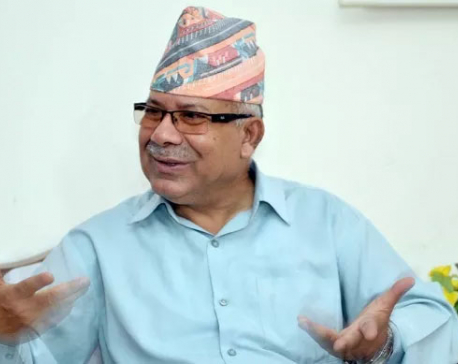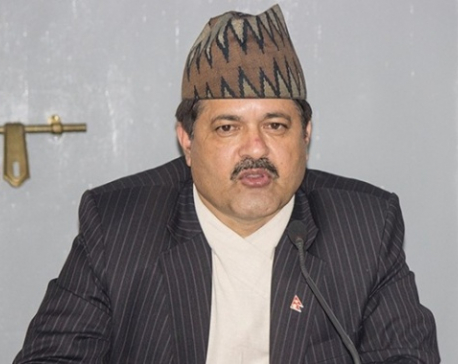
OR
Looking ahead to 2017
The year 2017 must be a ‘year of elections’ if Nepal is to avert a serious political and constitutional crisis. There are now less than 13 months for the constitutionally-mandated three sets of elections. Sadly, most of 2016 was wasted as no headway could be made towards these elections. There would have been plenty of time for these elections had preparations for them started right after the promulgation of the constitution on September 20th, 2015. It wasn’t meant to be. Following its promulgation, the country had to witness five months of the crippling blockade of its border. The blockade would be lifted only at the start of February, 2016 when the government of KP Sharma Oli pushed through the first amendment of the new constitution. The amendment granted greater representation for Madheshi, Janajatis and other marginalized communities in state organs. Also in line with the demand of the Madheshi parties, ‘population’ rather than ‘geography’ would be made the main basis for election constituency delimitation. But Madheshi parties refused to own up these amendments.
They rejected the first amendment as it was silent on their central demand: that the whole of Tarai-Madhesh be separated into no more than two, Madhesh-only provinces. And so even though they were forced to lift the border blockade after India decided to side with the establishment in Kathmandu, they continued to agitate in other forms. In August, Pushpa Kamal Dahal replaced Oli as prime minister, after Nepali Congress, the biggest party in parliament, decided that Oli was incapable of solving the problem in Madhesh.
But Congress support for the Maoist leader was contingent: Dahal would make way for Deuba as prime minister after nine months during which time local elections would also be held. Deuba would then be the prime minster and hold provincial and federal elections under his watch. But, in the event, it became impossible for Dahal to hold local polls on the face of continued obstruction of the work of the local bodies delimitation commission in Madhesh districts. The Madheshi parties were adamant that there would be no elections unless the constitution was again amended to their liking.
It was in this context that the ruling Congress-Maoist coalition tabled the second constitution amendment motion in parliament at the end of November. UML and seven fringe parties that together comprise over one-thirds seats in the parliament, enough to thwart the amendment motion, have since been obstructing the parliament against the ‘anti-national’ amendment proposal. The Madheshi parties, meanwhile, have not been forthcoming on whether they support or oppose the proposal. In this tug-of- war the all-important task of holding the three elections within the stipulated timeframe has been put on the backburner. Our political parties are playing a dangerous game. The constitutional crisis that would ensue from the failure to hold timely polls could have as yet unimaginable consequences. The dire results of the political vacuum created following the demise of the first Constituent Assembly in 2012 continues to be felt to this day. This is why the political parties must settle what they can right now and immediately work towards clearing the hurdles for the three elections. Then let the sovereign people vote for the kind of constitutional settlements that they think is in the country’s best interest.
You May Like This

TU sets age bar of 28 for contesting FSU elections
KATHMANDU, Jan 5: Tribhuvan University (TU) has set age bar for its students to contest elections to the Free Students Unions... Read More...

Elections will clear confusions in constitution enforcement: Nepal
ITAHARI, Oct 21: CPN (UML) leader and former Prime Minister Madhav Kumar Nepal has said confusions seen in the enforcement... Read More...

Govt formulating legislation for three upcoming elections: Law minister Kharel
BIRATNAGAR, July 2: Minister for Law, Justice and Parliamentary Affairs Agni Prasad Kharel today said that the government has started... Read More...







Just In
- NRB to provide collateral-free loans to foreign employment seekers
- NEB to publish Grade 12 results next week
- Body handover begins; Relatives remain dissatisfied with insurance, compensation amount
- NC defers its plan to join Koshi govt
- NRB to review microfinance loan interest rate
- 134 dead in floods and landslides since onset of monsoon this year
- Mahakali Irrigation Project sees only 22 percent physical progress in 18 years
- Singapore now holds world's most powerful passport; Nepal stays at 98th











Leave A Comment